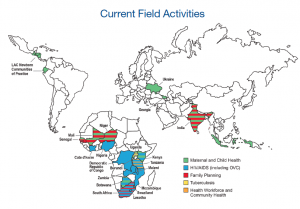
Despite the availability of evidence-based, simple, high-impact interventions capable of saving lives and alleviating suffering, many patients and clients are not benefiting from them. Evidence-based care is not reaching the people who most need it, despite an abundance of evidence-based guidelines and consensus on what should be done.
Much of this implementation gap is related to weak health systems and processes of care delivery. Such weakness manifests itself in various aspects of the quality of care, including effectiveness, efficiency, patient/client-centeredness, equity, safety, accessibility, timeliness, community involvement, and inability to achieve targets set for the Millennium Development Goals.Despite the availability of evidence-based, simple, high-impact interventions capable of saving lives and alleviating suffering, many patients and clients are not benefiting from them. Evidence-based care is not reaching the people who most need it, despite an abundance of evidence-based guidelines and consensus on what should be done.
Much of this implementation gap is related to weak health systems and processes of care delivery. Such weakness manifests itself in various aspects of the quality of care, including effectiveness, efficiency, patient/client-centeredness, equity, safety, accessibility, timeliness, community involvement, and inability to achieve targets set for the Millennium Development Goals.
The USAID Applying Science to Strengthen and Improve Systems (ASSIST) Project is a five-year project of the Office of Health Systems of the USAID Global Health Bureau designed to address this challenge by improving health care in USAID-assisted countries, strengthening their health systems, and advancing the frontier of improvement science.